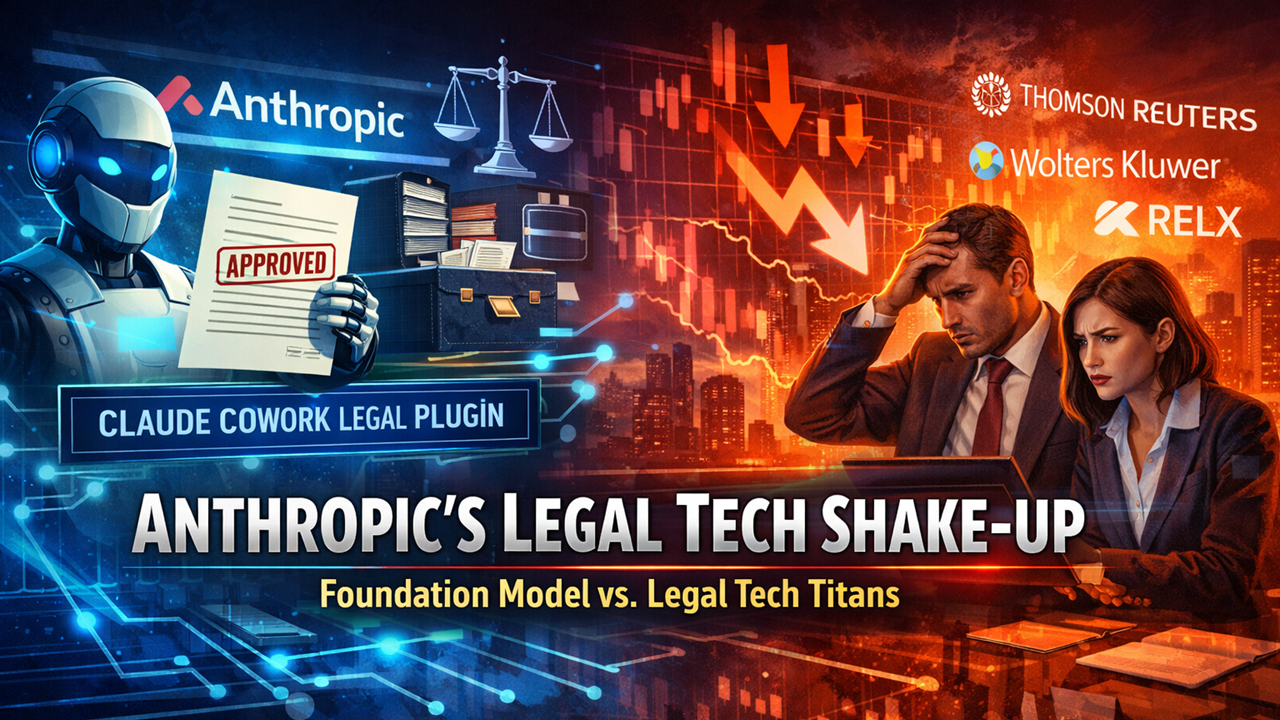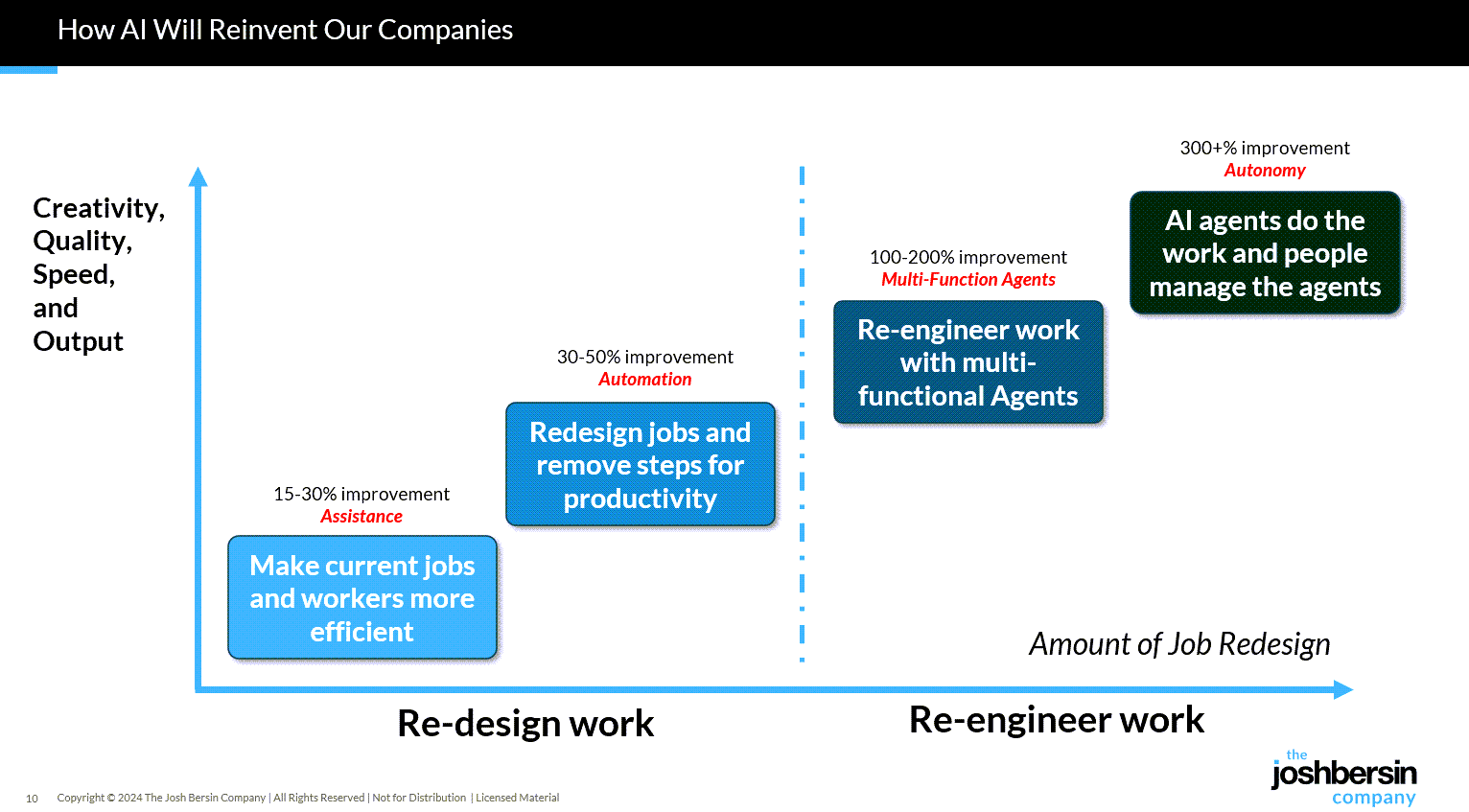Law Firm 2.0: A Trillion-Dollar Market Begins To Move — from abovethelaw.com by Ken Crutchfield
The test cases for Law Firm 2.0 are arriving faster than many expected.
A move to separate legal advice from other legal services that don’t require advice is a big shift that would ripple through established firms and also test regulatory boundaries.
…
The LegalTech Fund (TLTF) sees a $1 trillion opportunity to reinvent legal services through the convergence of technology, regulatory changes, and innovation. TLTF calls this movement Law Firm 2.0, and the fund believes a reinvention will pave the way for entirely new, tech-enabled models of legal service delivery.
From Paper to Platform: How LegalTech Is Revolutionizing the Practice of Law — from markets.financialcontent.com by AB Newswire
For decades, practicing law has been a business about paper — contracts, case files, court documents, and floor-to-ceiling piles of precedent. But as technology transforms all aspects of modern-day business, law firms and in-house legal teams are transforming along with it. The development of LegalTech has revolutionized what was previously a paper-driven, manpower-intensive profession into a data-driven digital web of collaboration and automation.
Conclusion: Building the Future of Law
The practice of law has always been about accuracy, precedent, and human beings. Technology doesn’t alter that — it magnifies it. The shift to the platform from paper is about liberating lawyers from back-office tasks so they can concentrate on strategy, advocacy, and creativity.
By coupling intelligent automation with moral obligation, today’s firms are positioning the legal profession for a more intelligent, responsive industry. LegalTech isn’t about automation, it’s about empowering attorneys to practice at the speed of today’s business.
What Legal Can Learn from Other Industries’ AI Transformations — from jdsupra.com
Artificial intelligence has already redefined how industries like finance, healthcare, and supply chain operate — transforming once-manual processes into predictive, data-driven engines of efficiency.
Yet the legal industry, while increasingly open to innovation, still lags behind its peers in adopting automation at scale. As corporate legal departments face mounting pressure to do more with less, they have an opportunity to learn from how other sectors successfully integrated AI into their operations.
The message is clear: AI transformation doesn’t just change workflows — it changes what’s possible.
7 Legal Tech Trends To Watch In 2026 — from lexology.com
Small Language Models Are Changing Legal Tech: What That Means for Lawyers and Law Firms — from community.nasscom.in
The legal profession is at a turning point. Artificial intelligence tools are moving from novelty to everyday utility, and small language models, or SLMs, are a major reason why. For law firms and in-house legal teams that are balancing client confidentiality, tight budgets, and the need to move faster, SLMs offer a practical, high impact way to bring legal AI into routine practice. This article explains what SLMs are, why they matter to lawyers, where they fit in legal workflows, and how to adopt them responsibly.
Legal AI startup draws new $50 million Blackstone investment, opens law firm — from reuters.com by Sara Merken
NEW YORK, Nov 20 (Reuters) – Asset manager Blackstone (BX.N), opens new tab has invested $50 million in Norm Ai, a legal and compliance technology startup that also said on Thursday that it is launching an independent law firm that will offer “AI-native legal services.”
Lawyers at the new New York-based firm, Norm Law LLP, will use Norm Ai’s artificial intelligence technology to do legal work for Blackstone and other financial services clients, said Norm Ai founder and CEO John Nay.
Law School Toolbox Podcast Episode 531: What Law Students Should Know About New Legal Tech (w/Gabe Teninbaum) — from jdsupra.com
Today, Alison and Gabe Teninbaum — law professor and creator of SpacedRepetition.com — discuss how technology is rapidly transforming the legal profession, emphasizing the importance for law students and lawyers to develop technological competence and adapt to new tools and roles in the legal profession.
New York is the San Francisco of legal tech — from businessinsider.com by Melia Russell
- Legal tech ?? NYC.
- To win the market, startups say they need to be where the law firms and corporate legal chiefs are.
- Legora and Harvey are expanding their footprints in New York, as Clio hunts for office space.
Legal Tech Startups Expand in New York to Access Law Firms — from indexbox.io
Several legal technology startups are expanding their physical presence in New York City, according to a report from Legal tech NYC. The companies state that to win market share, they need to be located where major law firms and corporate legal departments are based.
Linklaters unveils 20-strong ‘AI lawyer’ team — from legalcheek.com by Legal Cheek
Magic Circle giant Linklaters has launched a team of 20 ‘AI Lawyers’ (yes, that is their actual job title) as it ramps up its commitment to artificial intelligence across its global offices.
The new cohort is a mix of external tech specialists and Linklaters lawyers who have decided to boost their legal expertise with advanced AI know-how. They will be placed into practice groups around the world to help build prompts, workflows and other tech driven processes that the firm hopes will sharpen client delivery.
I went to a closed-door retreat for top lawyers. The message was clear: Don’t fear AI — use it. — from businessinsider.com by Melia Russell
- AI is making its mark on law firms and corporate legal teams.
- Clients expect measurable savings, and firms are spending real money to deliver them.
- At TLTF Summit, Big Law leaders and legal-tech builders explored the future of the industry.
From Cost Center to Command Center: The Future of Litigation is Being Built In-House — from law.stanford.edu by Adam Rouse, Tamra Moore, Renee Meisel, Kassi Burns, & Olga Mack
Litigation isn’t going away, but who leads, drafts, and drives it is rapidly changing. Empirical research shows corporate legal departments have steadily expanded litigation management functions over the past decade. (Annual Litigation Trends Survey, Norton Rose Fulbright (2025)).
For decades, litigation lived squarely in the law firm domain. (Wald, Eli, Getting in and Out of the House: Career Trajectories of In-House Lawyers, Fordham Law Review, Vol. 88, No. 1765, 2020 (June 22, 2020)). Corporate legal departments played a responsive role: approving strategies, reviewing documents, and paying hourly rates. But through dozens of recent conversations with in-house legal leaders, legal operations professionals, and litigation specialists, a new reality is emerging. One in which in-house counsel increasingly owns the first draft, systematizes their litigation approach, and reshapes how outside counsel fits into the picture.
AI, analytics, exemplar libraries, playbooks, and modular document builders are not simply tools. They are catalysts for a structural shift. Litigation is becoming modular, data-informed, and orchestrated by in-house teams who increasingly want more than cost control. They want consistency, clarity, and leverage. This piece outlines five major trends from our qualitative research, predictions on their impact to the practice of law, and research questions that are worth considering to further understand these trends. A model is then introduced for understanding how litigation workflows and outside counsel relationships will evolve in the coming years.











